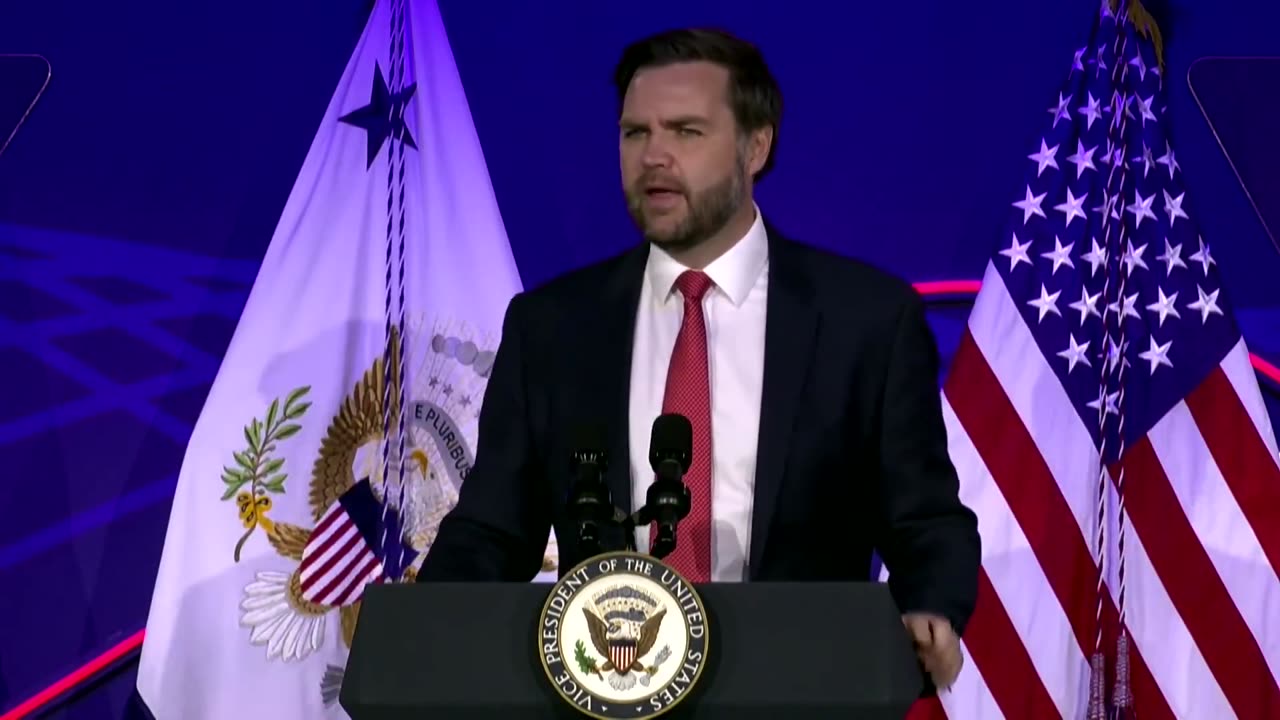Premium Only Content

Vance explains that "the idea of globalization was that rich countries would move further
Arnaud Bertrand
@RnaudBertrand
·
12h
This is actually an extraordinary admission to make for a US Vice President https://x.com/OopsGuess/status/1902396228404674853/video/1
Vance explains that "the idea of globalization was that rich countries would move further up the value chain while the poor countries made the simpler things."
But he laments that it didn't quite work out this way: as he explains it turns out that poor countries (mostly China) didn't want to just remain cheap labor forever and started moving up the value chain themselves. Which is why, according to him, globalization was a failure.
Meaning that the objective of globalization wasn't to reduce global inequalities but very much to maintain them, to institute a system of permanent economic hierarchy where rich countries would maintain their hold over the most profitable sectors while relegating poor countries to perpetual subordination in lower-value production.
This is basically all you need to know to explain 90% of U.S. foreign policy these past few years: colonial thinking is alive and well, and America's shift of strategy in recent years - away from the previous "Washington Consensus" of "free" markets towards a much more overt attempt to contain and restrict China's development - stems precisely from this mindset.
From semiconductor export controls to investment restrictions, these policies aren't about 'national security' in any genuine sense - they're about trying to preserve a global economic order where, simply put, poorer nations know their assigned place and stay there. At the very core, that's the "China threat": a China that stepped out of the economic lane assigned to it by the West.
It's deeply ironic when you think of it: a global game allegedly designed to "spread market principles" worldwide is being abandoned precisely because it worked too well. When China succeeded better than expected, the response wasn't to celebrate the validation of the game's effectiveness but to change its rules. Precisely because the real unspoken game - but now clearly stated by the U.S. Vice President - was to maintain global inequality, not eliminate it.
All in all, in case they hadn't yet gotten the memo, this sends a very clear message to the developing world: economic development will require challenging a U.S.-dominated economic order that views their advancement as a threat rather than a success. Which incidentally is why Vance's words might actually help accelerate the very redistribution of global economic power he laments, pushing more nations to recognize that genuine development requires strategic independence from a system intended to keep them in their place.
-
 24:13
24:13
Jasmin Laine
9 hours agoPoilievre Can’t Stop LAUGHING—Liberals IMPLODE After U.S. Ambassador Calls Them Out
16.6K20 -
 4:04:31
4:04:31
SpartakusLIVE
7 hours agoTexas FARMBOY turned WZ PRO turned REDSEC HERO turned ARC LOOT GOBLIN
41.5K -
 2:34:18
2:34:18
Mally_Mouse
5 days ago🎮 Throwback Thursday! Let's Play: Kingdom Hearts 1 pt. 4
33.9K5 -
 25:14
25:14
Stephen Gardner
5 hours agoCLINTONS PANIC AS ARREST CALLS EXPLODE – Scott Jennings GOES OFF! 😱
30.8K24 -
 2:14:15
2:14:15
DLDAfterDark
3 hours ago $1.18 earnedThe AR15 BurnDown That Will Leave You Speechless!
19.4K -
 1:48:12
1:48:12
megimu32
4 hours agoON THE SUBJECT: Throwback Thursday | Wheel of Nostalgia Chaos!
27.1K9 -
 2:32:11
2:32:11
Flyover Conservatives
23 hours agoTrojan Horse in the Big Apple? Prophetic Warning w/ Robin D. Bullock | FOC Show
32.6K9 -
 1:31:48
1:31:48
Precision Rifle Network
1 day agoS5E6 Guns & Grub - The Boys Are Back!
15.5K7 -
 4:29:29
4:29:29
SynthTrax & DJ Cheezus Livestreams
4 days agoLumines - Arise - DJ Cheezus Birthday Stream
23.1K1 -
 1:00:41
1:00:41
Glenn Greenwald
9 hours agoEXCLUSIVE: Succession Actress & Podcast Host Dasha Nekrasova Speaks Out About Hollywood Cancellation Over Fuentes Interview | SYSTEM UPDATE #549
119K108